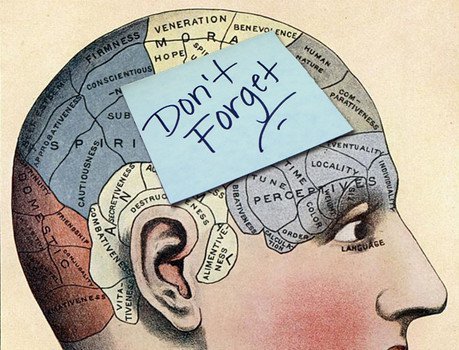It’s easy to be jealous of people who have a good, healthy memory, especially if you’re one of those people who can’t even remember what they ate for lunch the previous day. It’s annoying, and can even be a little debilitating at times, at least seemingly so. Being forgetful might not actually be all that bad though, especially if certain new evidence is to be believed.
According to a Stanford study, being forgetful might actually mean your brain is functioning at a higher level.

Recently, Brice Kuhl from Stanford University in California, US, and his colleagues conducted an experiment where they used functional magnetic resonance imaging (fMRI) to measure the brain activity of 20 healthy adults while they performed a simple memory test. They gave the participants 3 pairs of words to memorise, out of which 2 were closely associated. These words were – ‘ATTIC dust’, ‘ATTIC junk’ and ‘MOVIE reel’.
“After studying ‘ATTIC dust’ a second time, subjects were asked to recall all three pairs using the first words as cues. On average, people were 15% worse at recalling ‘ATTIC junk’ than they were at recalling the unrelated pair, MOVIE reel’.”
They believe this inability to recall the 2nd pair of words implies the brain is adapting by discarding ‘unimportant’ memories to make space for new ones.

The findings from the test revealed that the brains of the participants’ were highly active in a region known for handling competing memories, as well as in an area thought to induce memory suppression.
According to Kuhl, the failure to memorize the second related word pair happened because the brain, trying to conserve space, discards memories that are similar to others or memories that are deemed not too important, giving it more space for other important memories.

“The process of forgetting serves a good functional purpose,” says Michael Anderson of the University of Oregon, US, who was not involved in the study. “What these guys have done is clearly establish the neurobiological basis for this process.”

















